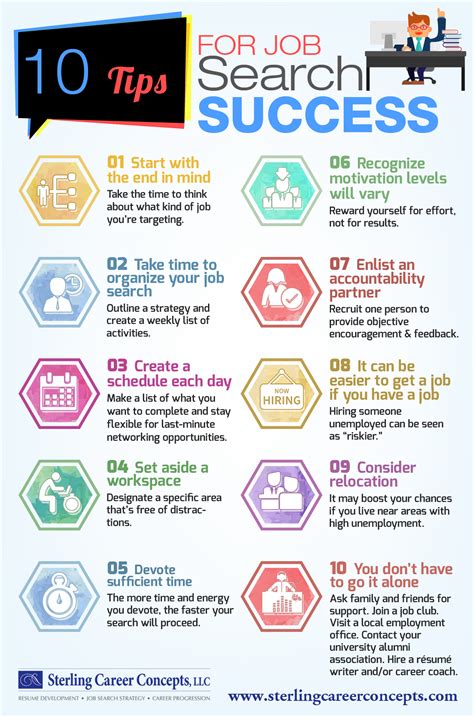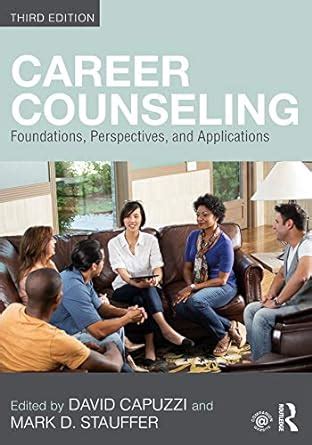Career counseling is a vital aspect of personal and professional development, enabling individuals to make informed decisions about their career paths and achieve a fulfilling professional life. With its roots in vocational psychology, career counseling has evolved over the years, incorporating various perspectives and approaches to cater to the diverse needs of individuals. In this article, we will delve into the foundations, perspectives, and applications of career counseling, highlighting its significance and importance in today's fast-paced and ever-changing work environment.
The Importance of Career Counseling
Career counseling is essential for individuals at various stages of their careers, whether they are students exploring potential career options, professionals seeking to transition to a new field, or executives aiming to advance in their current roles. Effective career counseling can help individuals:
- Identify their strengths, weaknesses, interests, and values
- Explore career options that align with their skills and aspirations
- Develop a career plan and set realistic goals
- Enhance their job search skills and strategies
- Manage career transitions and job changes
- Improve their overall job satisfaction and well-being
Foundations of Career Counseling
The foundations of career counseling are rooted in vocational psychology, which emphasizes the importance of understanding individual differences, personality traits, and career development theories. Some of the key foundations of career counseling include:
- Trait-Factor Theory: This theory, developed by Frank Parsons, emphasizes the importance of matching individual traits and factors with career requirements.
- Holland's Career Typology: John Holland's theory categorizes individuals into six career types (Realistic, Investigative, Artistic, Social, Enterprising, and Conventional) and suggests that career satisfaction is highest when individuals work in environments that align with their career type.
- Super's Career Development Theory: Donald Super's theory proposes that career development is a lifelong process, involving the exploration, establishment, maintenance, and disengagement phases.
Perspectives in Career Counseling
Career counseling perspectives have evolved over the years, incorporating various approaches and theories to address the diverse needs of individuals. Some of the key perspectives in career counseling include:
- Psychodynamic Perspective: This perspective emphasizes the importance of exploring unconscious thoughts, feelings, and experiences in shaping career choices and behaviors.
- Cognitive-Behavioral Perspective: This perspective focuses on identifying and changing negative thought patterns and behaviors that may be hindering career development.
- Constructivist Perspective: This perspective emphasizes the importance of individual constructions and meanings in shaping career choices and experiences.
- Social Cognitive Career Theory: This theory, developed by Lent, Brown, and Hackett, emphasizes the importance of self-efficacy, outcome expectations, and learning experiences in shaping career choices and behaviors.
Applications of Career Counseling
Career counseling has numerous applications across various settings, including schools, colleges, universities, organizations, and private practices. Some of the key applications of career counseling include:
- Career Assessment: Career counselors use various assessment tools, such as interest inventories, personality tests, and skills assessments, to help individuals identify their strengths, weaknesses, and career options.
- Career Exploration: Career counselors work with individuals to explore career options, identify job market trends, and develop a career plan.
- Job Search Strategies: Career counselors teach individuals effective job search strategies, including resume writing, interviewing skills, and networking techniques.
- Career Development: Career counselors work with individuals to develop a career plan, set realistic goals, and enhance their job satisfaction and well-being.

Technology in Career Counseling
Technology has revolutionized the field of career counseling, providing individuals with access to various online resources, tools, and platforms. Some of the key technological applications in career counseling include:
- Online Career Assessments: Online career assessments, such as career quizzes and personality tests, provide individuals with insights into their strengths, weaknesses, and career options.
- Career Information Systems: Career information systems, such as O*NET and CareerOneStop, provide individuals with access to job market trends, career options, and employment data.
- Virtual Career Counseling: Virtual career counseling platforms, such as video conferencing and online chat platforms, enable individuals to access career counseling services remotely.
Diversity and Inclusion in Career Counseling
Career counseling must be sensitive to the diverse needs of individuals, including those from diverse racial, ethnic, cultural, and socioeconomic backgrounds. Career counselors must be aware of the impact of bias, stereotypes, and systemic barriers on career choices and experiences. Some of the key diversity and inclusion considerations in career counseling include:
- Cultural Competence: Career counselors must be culturally competent, understanding the values, norms, and expectations of diverse cultural groups.
- Social Justice: Career counselors must be aware of the impact of systemic barriers and social injustices on career choices and experiences.
- Individual Differences: Career counselors must be sensitive to individual differences, including abilities, disabilities, and learning styles.
Gallery of Career Counseling






FAQs
What is career counseling?
+Career counseling is a process that helps individuals explore their career options, identify their strengths and weaknesses, and develop a career plan.
What are the benefits of career counseling?
+The benefits of career counseling include increased self-awareness, improved job satisfaction, and enhanced career development.
What are some common career assessment tools?
+Some common career assessment tools include interest inventories, personality tests, and skills assessments.
In conclusion, career counseling is a vital aspect of personal and professional development, enabling individuals to make informed decisions about their career paths and achieve a fulfilling professional life. By understanding the foundations, perspectives, and applications of career counseling, individuals can navigate the complex and ever-changing work environment with confidence and success.
